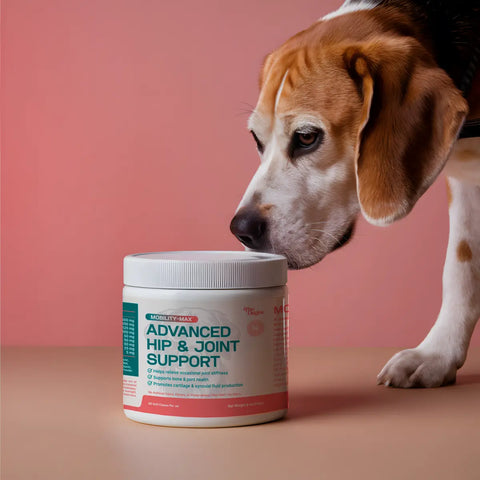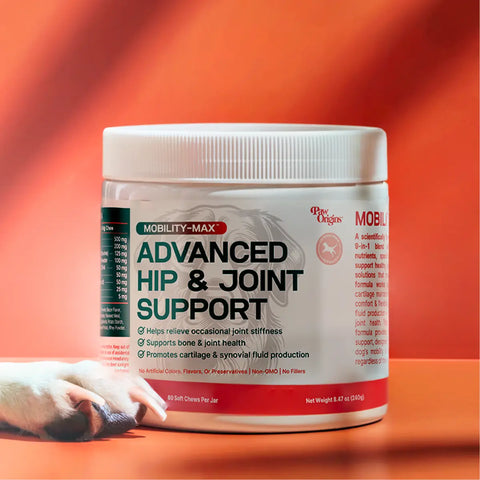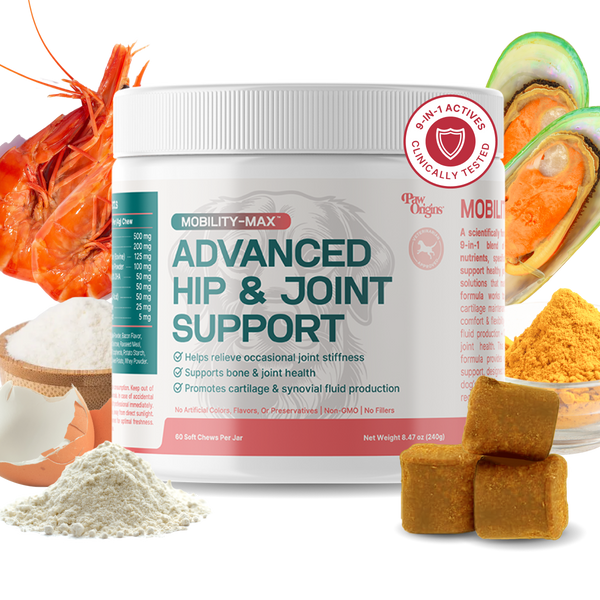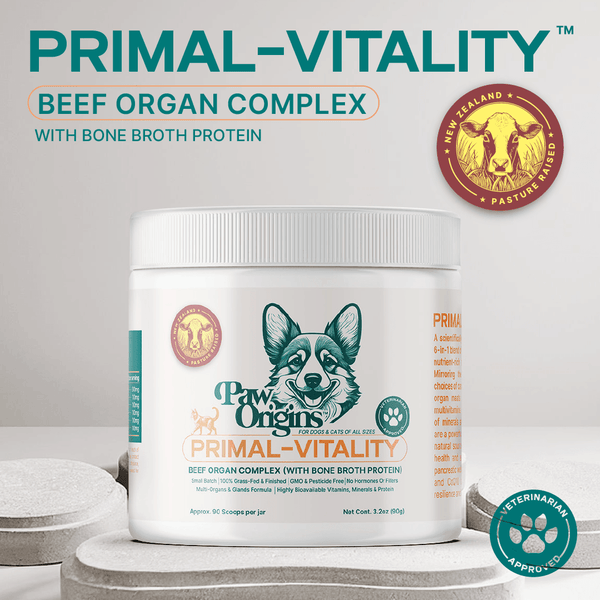Treatment for hip dysplasia in dogs
Frequently Asked Questions
How to Ease Joint Pain in Dogs?
Joint pain in dogs, whether from aging, arthritis, or injury, can affect mobility and quality of life. Targeted nutrition with omega-3s, glucosamine, and chondroitin helps reduce inflammation and support joint health. Low-impact exercise, weight management, and orthopedic bedding also play a key role in pain relief. Mobility-Max™ Advanced Hip & Joint Support Chews provide long-term benefits by addressing the root causes of joint discomfort, promoting better mobility and overall comfort.
How to Improve Joint Mobility in Aging Dogs?
As dogs age, maintaining joint mobility is essential for their comfort and activity levels. Supplements with glucosamine, MSM, and hyaluronic acid help lubricate joints and reduce stiffness, while omega-3s support overall joint health. Gentle exercise, cushioned bedding, and non-slip flooring can further ease movement and prevent strain. Mobility-Max™ Advanced Hip & Joint Support Chews provide long-term joint care by promoting cartilage repair and flexibility, helping senior dogs stay active and comfortable.
How to relieve arthritis pain in dogs?
Managing arthritis pain in dogs involves a combination of nutrition, exercise, and joint support. Supplements with omega-3s, glucosamine, and chondroitin help reduce inflammation and improve mobility, while maintaining a healthy weight minimizes joint strain. Gentle activities like swimming and soft bedding provide additional relief. Mobility-Max™ Advanced Hip & Joint Support Chews offer a long-term solution by promoting cartilage repair and reducing discomfort, helping dogs stay active and comfortable.
How to Manage Arthritis in Overweight Dogs?
Arthritis in overweight dogs can be particularly challenging, as excess weight puts additional strain on already inflamed joints. Shedding extra pounds through a vet-approved diet reduces joint strain, while low-impact activities like swimming and short walks improve mobility. Mobility-Max™ Advanced Hip & Joint Support Chews provide essential nutrients to reduce inflammation and protect cartilage, helping overweight dogs stay active and comfortable.
What’s the Best Joint Supplement for Dogs?
The best joint supplements for dogs reduce inflammation, support cartilage regeneration, and enhance mobility. Key ingredients like glucosamine, chondroitin, MSM, and omega-3s help lubricate joints and maintain flexibility. Mobility-Max™ Advanced Hip & Joint Support Chews provide a scientifically formulated blend of nine active ingredients, addressing the root causes of joint discomfort for long-term relief.




















